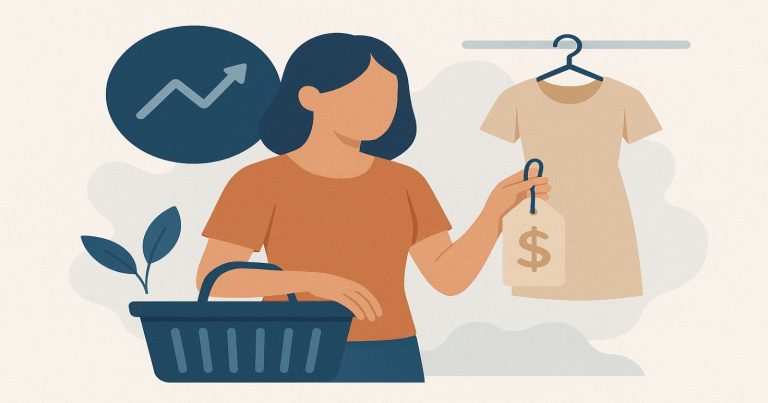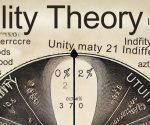Consumer theory is a cornerstone of microeconomics that seeks to understand how individuals make choices regarding the consumption of goods and services, given their budget constraints. It discusses consumer decision-making, specifically on how they maximize their satisfaction or utility while spending their income prudently. It analyzes preferences, income levels, and prices to explain demand curves, pricing strategies, and market behavior. This is essential in the design of economic policies, marketing strategies, and business decisions.
What is Consumer Theory?
Consumer theory studies how individuals allocate their limited resources (such as income) among various goods and services to maximize their overall satisfaction or utility. It builds on the assumption that consumers are rational decision-makers, seeking to achieve the highest level of satisfaction based on their preferences, constraints, and available choices.
In simpler terms, consumer theory explains how consumers decide what to buy, how much to spend, and how to divide their income across different products and services. Key elements of this theory include:
- Utility: The satisfaction or pleasure derived from consuming goods and services.
- Budget Constraint: The limitation on the quantity of goods a consumer can purchase due to limited income.
- Indifference Curves: Graphs that show different combinations of goods that provide the same level of satisfaction to the consumer.
- Consumer Choice: The selection made by the consumer based on their preferences and budget constraints.
Real-world Example of Consumer Theory
A classic example of consumer theory in action is the Law of Demand, which states that all else being equal, as the price of good rises, the quantity demanded by consumers falls. This relationship is a direct outcome of consumers’ utility-maximizing behavior.
Key Concepts in Consumer Theory
Consumer theory explores how individuals make choices about consumption, focusing on key concepts like preferences, indifference curves, and budget constraints to understand decision-making behavior.
- Preferences: Consumers have preferences for certain goods and services over others. These preferences are subjective and can vary between individuals.
- Indifference Curves: These curves represent different combinations of goods that give the consumer the same level of satisfaction. The higher the indifference curve, the higher the level of utility.
- Budget Line: The budget line represents all possible combinations of goods a consumer can purchase given their income and the prices of goods.
The objective of Consumer Theory
The primary objective of consumer theory is to understand how individuals make choices that maximize their satisfaction within the constraints they face, particularly income and prices. It explains the following:
- Utility Maximization: Consumers aim to maximize their utility or satisfaction from consuming goods and services.
- Rational Decision Making: Consumers are assumed to make decisions rationally, meaning they weigh the benefits of each choice against its cost.
- Optimizing Consumption: The theory seeks to explain how consumers allocate their resources across different goods and services to achieve the best possible outcome.
How Consumer Theory Achieves Its Objective?
Below is given how you can achieve the consumer theory objective:
- Utility Function: The utility function is a mathematical representation of consumer preferences. It shows how much satisfaction a consumer derives from consuming different quantities of goods.
- Equilibrium Point: The equilibrium point is where the consumer maximizes their utility given their budget constraint. This point occurs when the consumer’s marginal rate of substitution between two goods equals the ratio of their prices.
- Indifference Curve Analysis: By plotting indifference curves, it helps in understanding the consumer’s preferences. These curves also show how changes in income or price affect the consumer’s choice of goods.
Importance of Consumer Theory
Consumer theory is vital for both economists and businesses as it provides insights into behavior, helping to predict market trends, pricing strategies, and demand patterns. Here’s why it holds importance:
- Understanding Market Demand: Consumer theory forms the basis for deriving demand curves, which show the relationship between the price of a good and the quantity demanded by consumers. This helps businesses set optimal prices and predict consumer responses to price changes.
- Guiding Public Policy: Governments use this to design policies that impact consumer welfare, such as taxes, subsidies, and price controls. Understanding how consumers react to changes in prices and income helps in making informed decisions about public policy.
- Business Strategy: Companies use insights from this to develop marketing strategies, product pricing, and promotions. By understanding consumer preferences and behavior, businesses can target their products more effectively.
- Optimization of Resource Allocation: By analyzing consumer behavior, firms can optimize the allocation of resources, whether in production or marketing. This helps maximize profits and consumer satisfaction.
- Price Sensitivity: It helps businesses understand how sensitive consumers are to price changes, which is crucial for setting competitive prices and identifying potential for market expansion.
Consumer Theory FAQs
What is the theory of consumer behavior in economics?
The theory of consumer behavior explains how individuals make consumption choices to maximize satisfaction, based on preferences, budget, and prices.
What is consumer behavior in Economics Class 12?
In Class 12, consumer behavior studies how individuals make purchasing decisions, influenced by preferences, income, and prices, focusing on demand, utility, and budget constraints.
Can you provide examples of consumer behavior theory?
An example is when a consumer chooses between two goods by comparing the marginal utility per dollar spent, such as choosing between apples and oranges based on the additional satisfaction each provides.
How does the budget constraint impact consumer decisions?
The budget constraint limits spending, forcing consumers to balance their preferences with their income when making purchasing choices.
Why is consumer theory important for businesses?
Consumer theory helps businesses understand purchasing decisions, predict demand, set prices, and create marketing strategies that align with consumer preferences to maximize profit.


